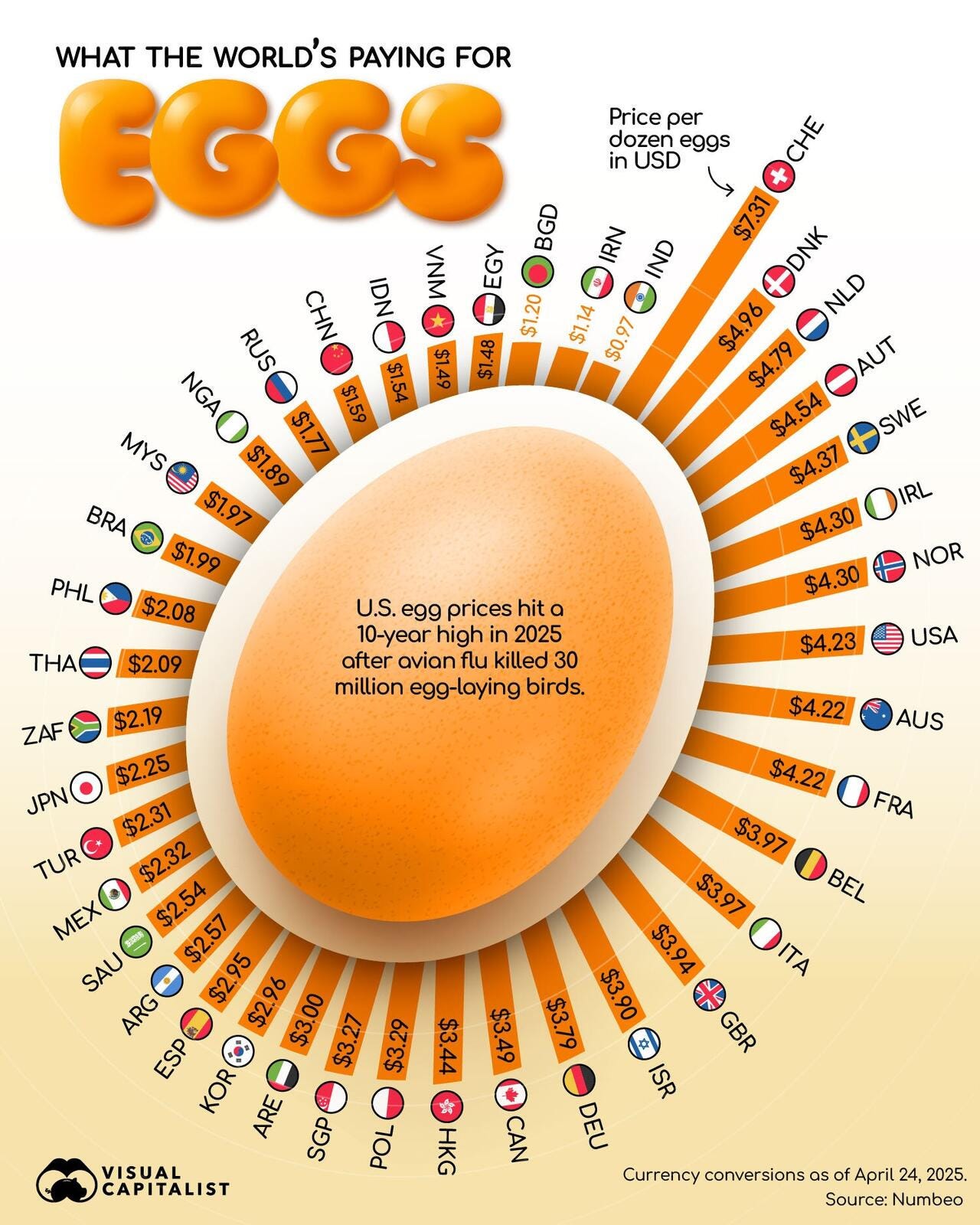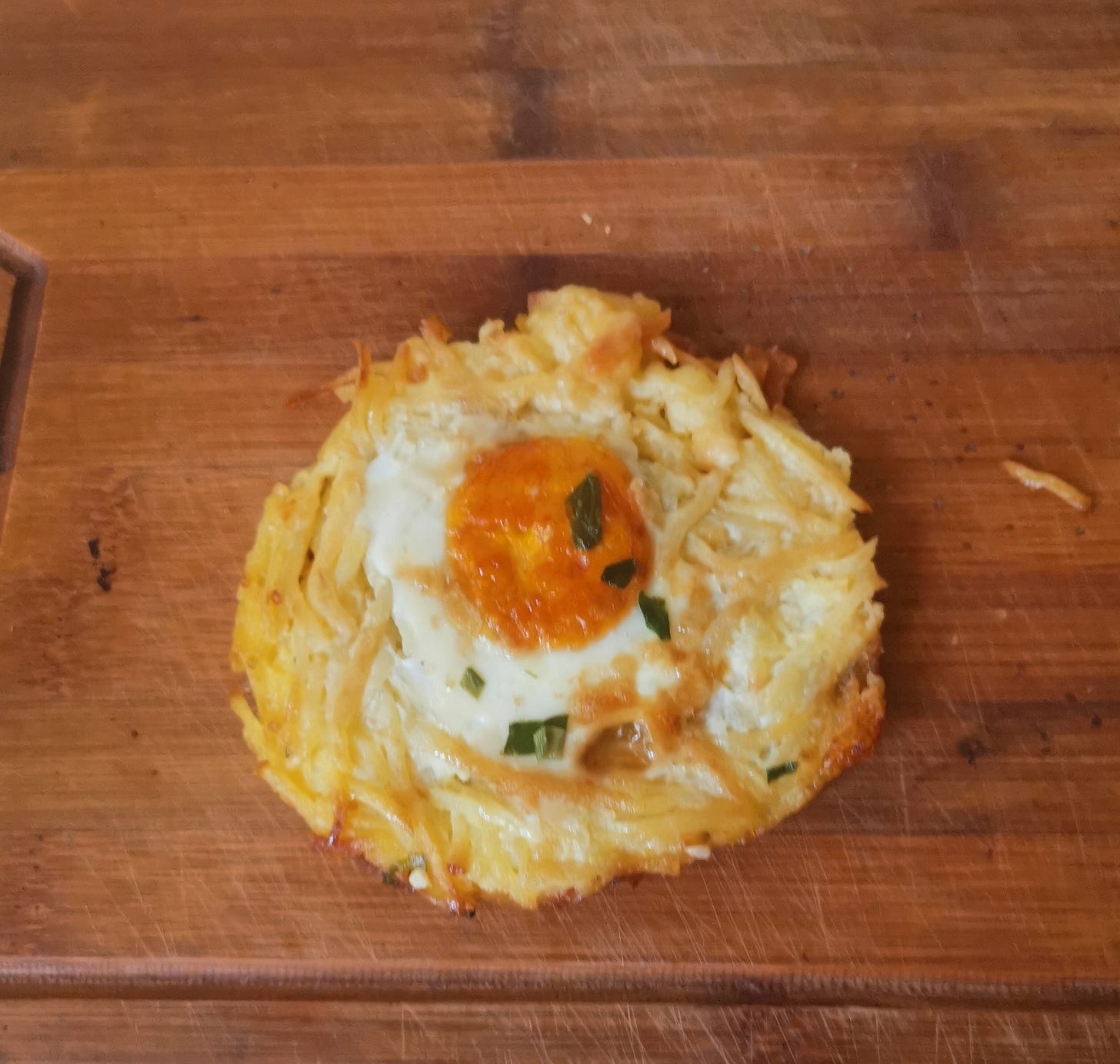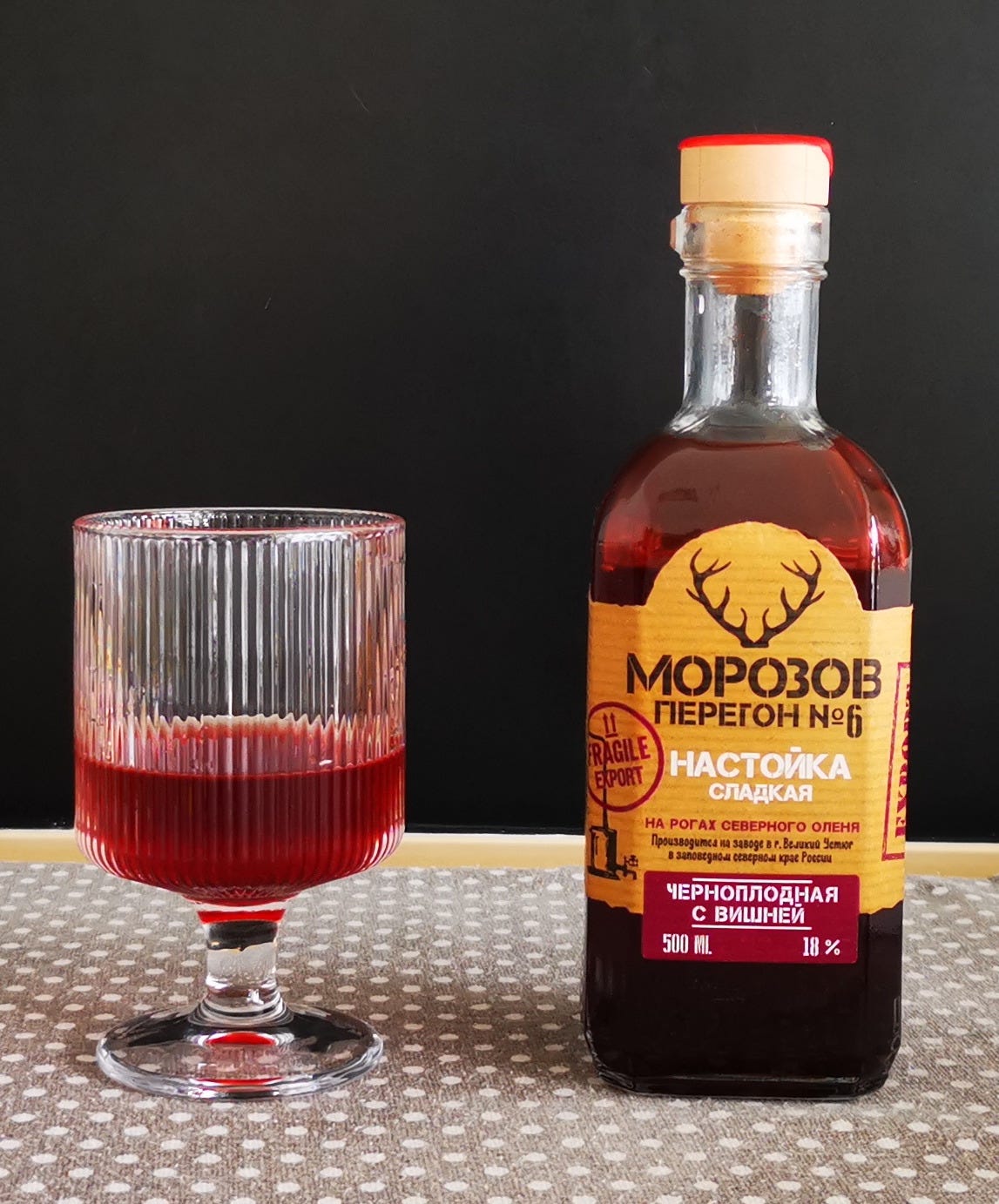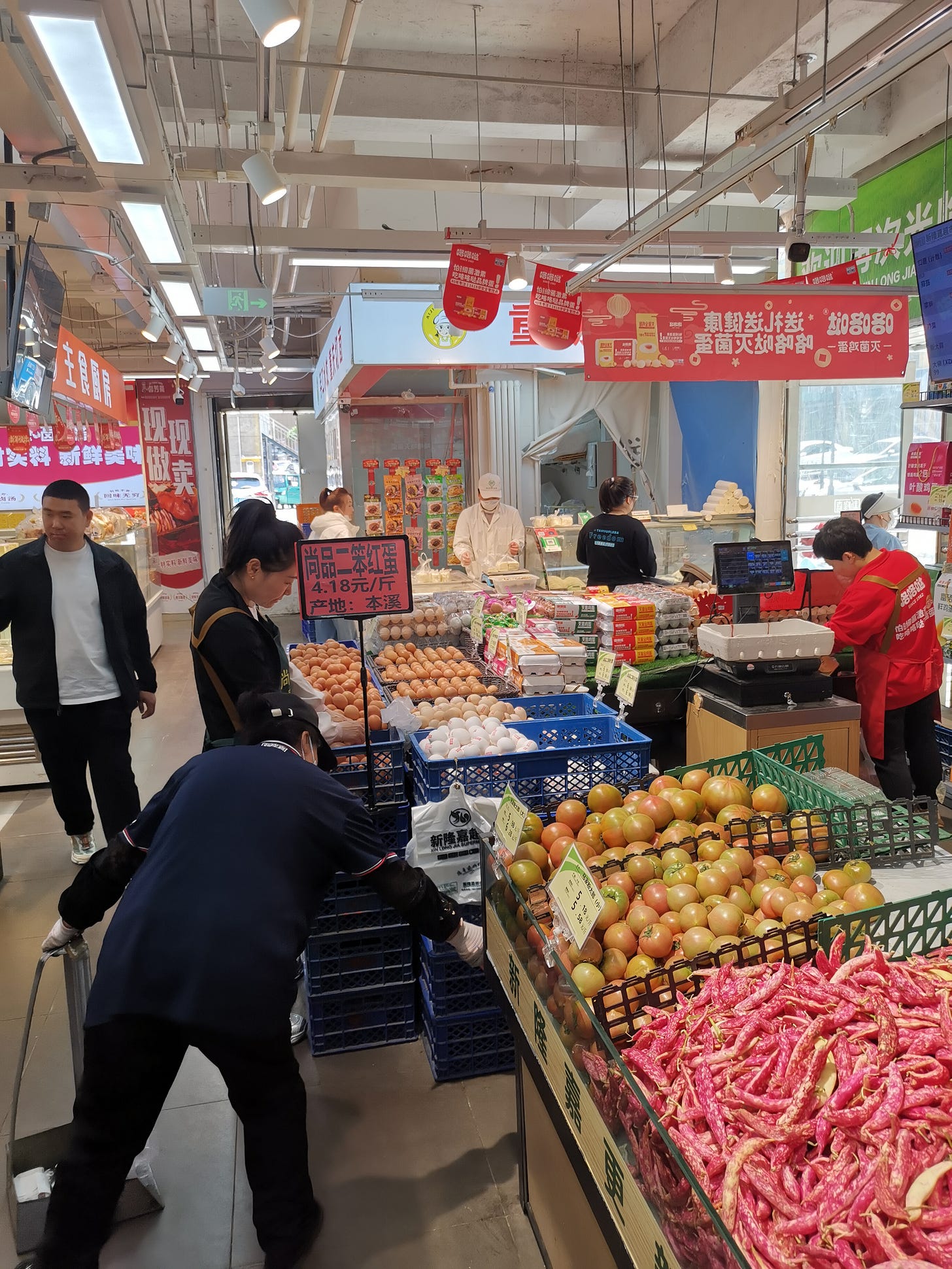Following a trek up the mountain this morning, Humble Wife, Our Little Dog, and yours truly visited the market, one of many within immediate walking distance of our home. I bought a large ripe tomato for ¥1.60, about 22 cents USD. Two bottles each of Kirin Ichiban and Asahi totalled ¥33.00 (note these are 500 and 630 ml respectively, not the pathetic 333 ml scant mouthful of many western and European beers). A dozen white-shelled eggs cost ¥10.70, about a buck-fifty American. A dozen of the cheapest brown eggs would have been about ninety cents US$. That’s quite inexpensive, if the following chart means anything.
I also bought two nameless 饼bing things (bing is the word for anything flat and round and bread-like), and these, composed of shredded potato with a whole egg cooked into the center, could be called 土豆鸡蛋饼 (tudou jidan bing, scroll down the link). They were quite tasty and reminded me of classic Jewish latkes. Even better was the price:三块钱一个 san kuai qian yi ge, three Chinese bucks apiece. I’ve personally made latkes at home a few times, and given the amount of labor involved, this is a far preferable option.
The particular market involved is one of the better ones in our neighborhood, for a couple of reasons. First is that the produce, meats, seafood, fruit and baked goods on offer are consistently fresh and of good quality. The 市场 shichang market’s first floor consists of numerous smaller independent vendors peddling a variety of products. But the egg seller does not offer bread, and the bakery does not sell fresh eggs.
The upper floor of the market is a typical grocery store carrying household goods, noodles, snacks, alcohol (available at any shop - no government liquor stores here), spices and seasonings, frozen and canned foods, plus a limited selection of what passes for dairy products – mostly an overwhelming selection of near-identical sickly-sweet yogurts, a few brands of milk, and Chinese-made slices of American-style ‘cheese food product.’ Not available anywhere in MyTown are things like coffee cream, sour cream, cream cheese, cheddar, blue cheese, unsweetened yogurt, etc. and to my great sorrow.
The second reason we prefer this market though is that the 超市chaoshi grocery store does offer certain foreign products that are often difficult to find. These include peanut butter (which once saved my life in China, but that’s another story), Russian dark (90%) chocolate, Italian pasta sauce, Russian not-quite-sour-enough dill pickles, Korean noodles, Japanese, Russian and European beer and other alcohol – Humble Wife has a bottle of Russian Cranberry alcohol (18% by volume) in the fridge as we speak.
On occasion I’m fortunate enough to discover real genuine authentic salted Aussie or Kiwi butter (seriously folks, is unsalted butter of any value to the world whatsoever? I GUESS NOT) and mozzarella cheese – oh joy, I can make pizza now, but only if I can find some olives or jalapeños and some pepperoni online, which usually need to come from god knows where, often a far-distant big city, via delivery service.
The eggs purchased today marked a milestone for Humble Wife. She (while not close to being old yet, but neither exactly young) had never eaten a white-shelled egg in her life. A variety of eggs are on offer at different prices here, depending on whether they’re corn/grain-fed, free-range, antibiotic and hormone-free, etc. Eggs are sold by weight in China, and thus the OCD-like obsession with egg size is entirely absent – they are however big and small they are, and customers just accept it.
The least expensive eggs available today were brown-shelled and modestly priced at just over 四块钱一斤, four yuan/jin, where a 斤 jin is equal to 500 grams. White-shelled eggs were a little more expensive at just under seven yuan/jin, and top-of-the-line brown eggs ran considerably more, at 12 yuan/jin, for those requiring all the latest buzzwords involving health, cutting-edge nutrition, animal well-being and similar considerations.
For lunch today then, Humble Wife enjoyed two fried (in salted butter, dammit!) eggs, one brown and one white. She could see a difference (mostly in yolk color) but couldn’t discern even a slight varation in taste. The vendor who provided the eggs told us that the color of the shells depends on the breed of chicken involved. Is this true? I have no idea and am far too indolent at the moment to look it up.
How does all of this relate to the impending apocalypse, as per the subtitle of this piece? In modern media, be it Youtube, TV, Twitter, Substack and many others, a never-ending litany of potentially cataclysmic threats to humanity are forever immanent. But just going about one’s normal life, as in a trip to market, reminds that the sky is not falling, the world is not burning, Covid is not wiping out humanity, the Republicans have not (yet) installed a Fascist dictatorship, Putin is not actually a threat to Europe (probably), and so on. Life simply goes on, mostly in ordinary ways, and mostly as before. Thus immanentizing the eschaton (go ahead, click that link, don’t be frightened, it’s just Wikipedia) is as insane as the people driving it. These folks are as always the primary threat to human dignity and freedom.
So relax and be sure to eat more eggs – just one of the creator’s many gifts to our world – if you can afford them, that is.







Is the peanut butter story like the Baijiu story, very exaggerated? Haha. But seriously, what a wonderful food eggs are, boil, bake, fry, scramble, poach, and used as a key ingredient in so many other recipes. In Brisbane we have a severe shortage of eggs, with some supermarkets out of stock completely for several days. Then, when they do get stock, it is limited. Price about A$6 per dozen home brand to about A$13 per dozen for organic free range. Time to buy a property and raise some chickens and grow some vegetables. Oh that's right, cant afford to buy a property in Australia. Even a 2 bedroom apartment in Brisbane (albeit a good area) is close to A$1 million. But as you said, life goes on and one day we may have butter that tastes like butter